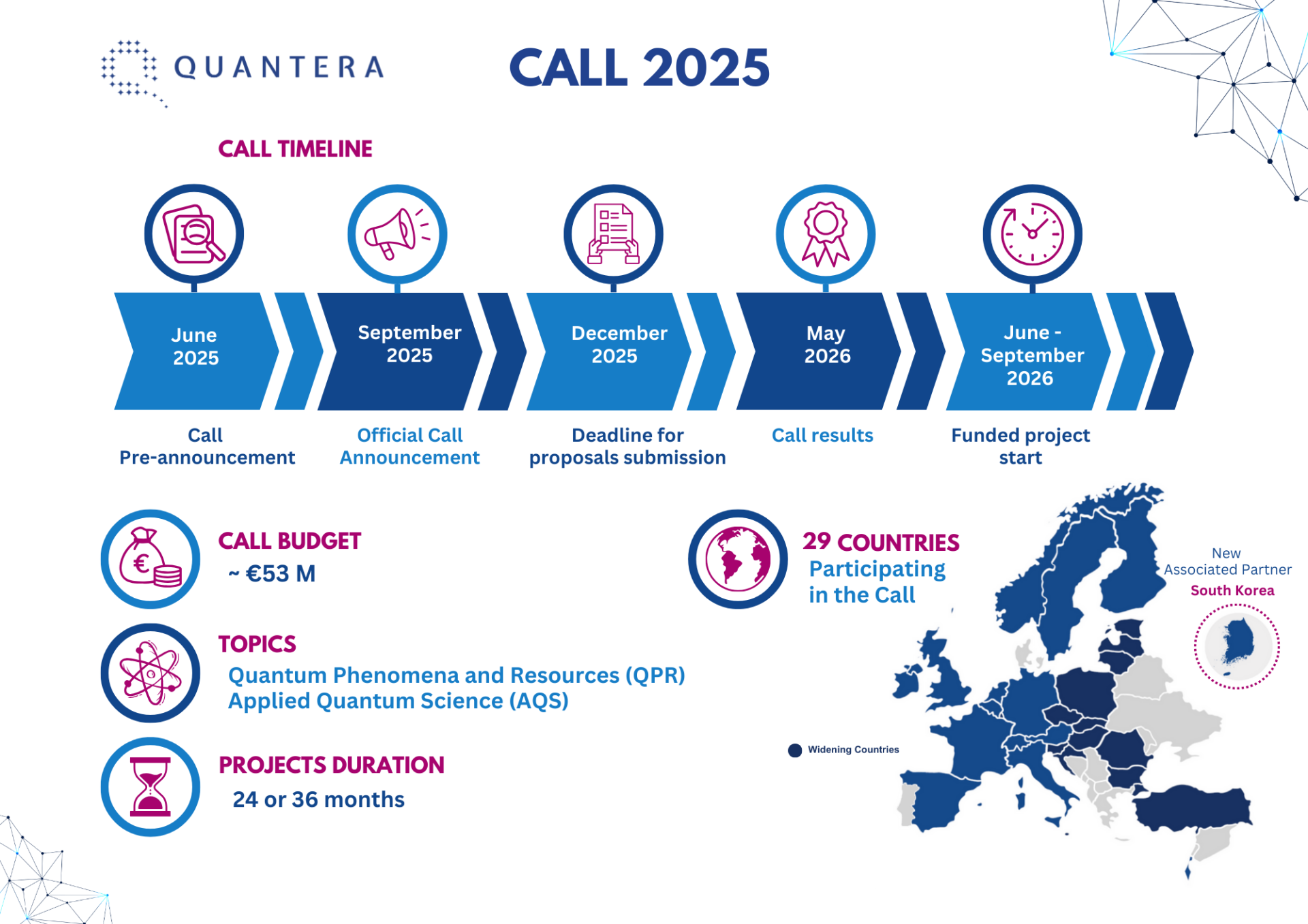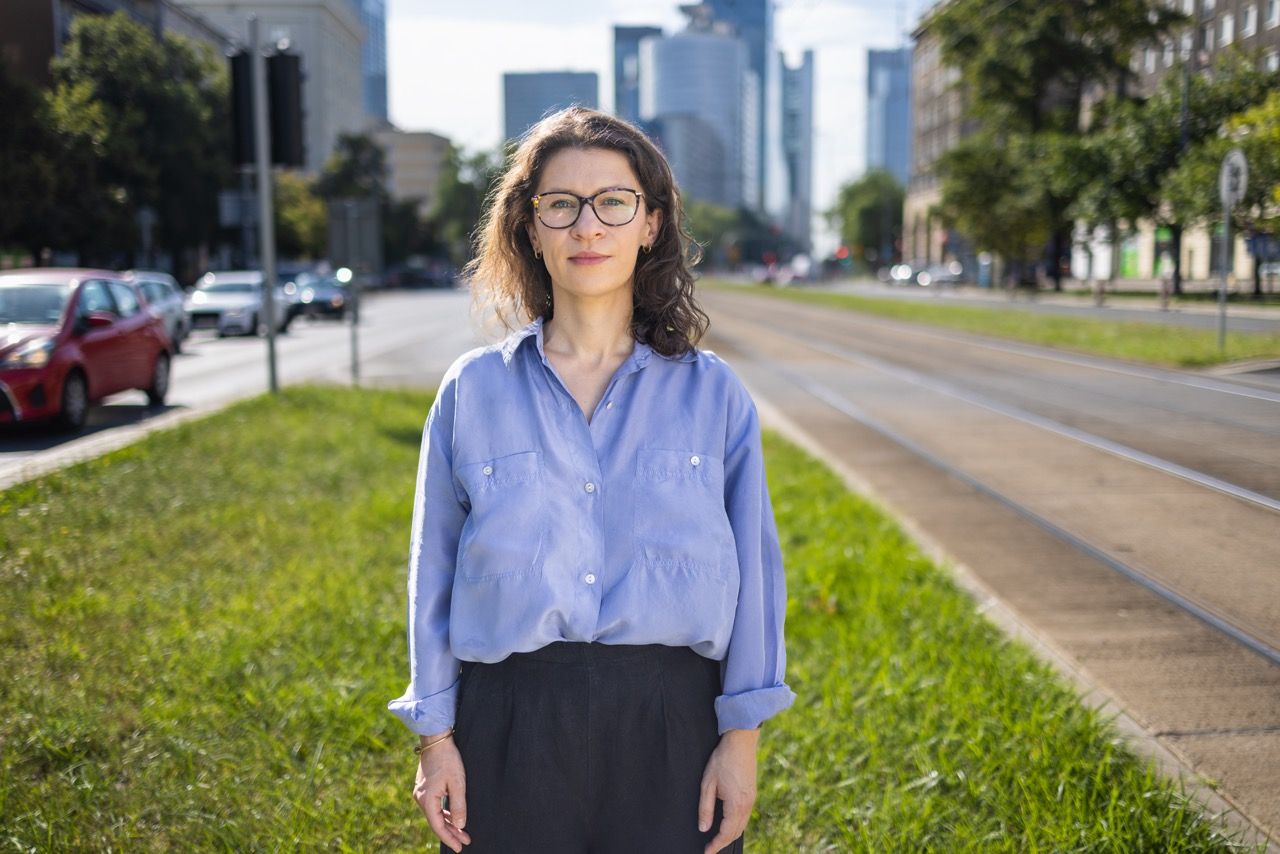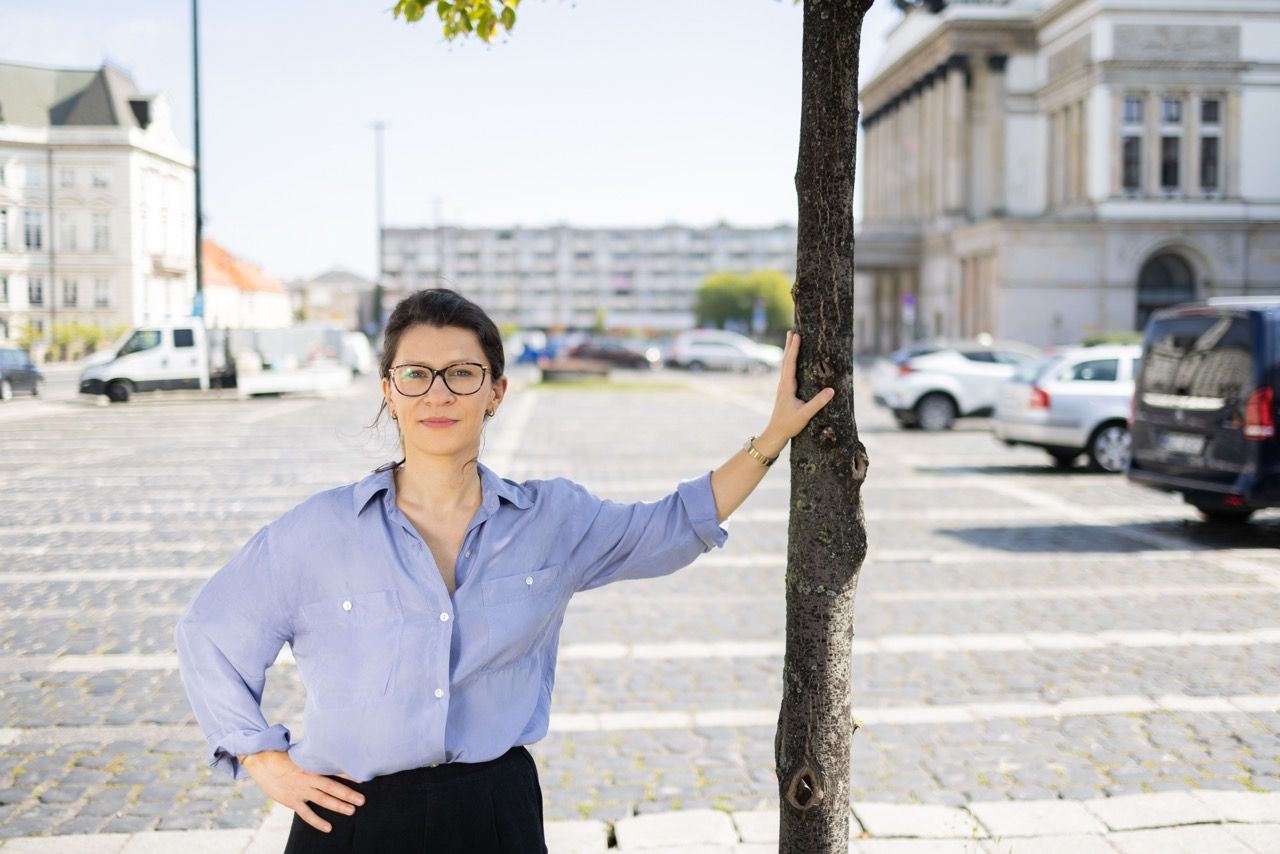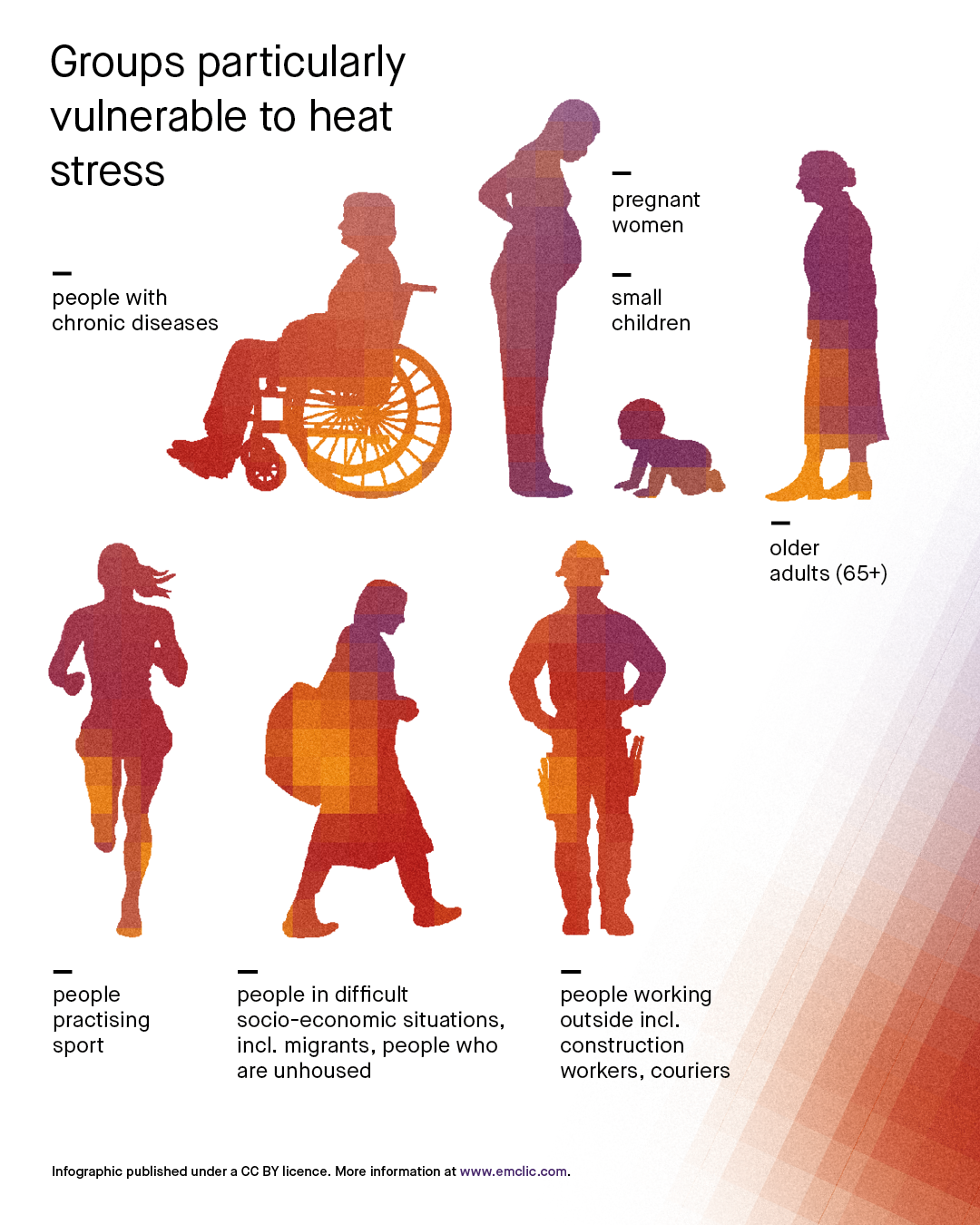Fuel for innovation
“I like to call basic research the fuel for all other types of research: industrial, translational, clinical,” said Sabina Górska, a microbiologist at the Polish Academy of Sciences, in Karpacz. “If Cooper and Miller had not studied the thymus, they would not have discovered T lymphocytes. Consequently, there would be no development of CAR-T therapy, which is revolutionising blood cancer treatment today. Basic research is an investment in the future, the effects of which we see after many years.”
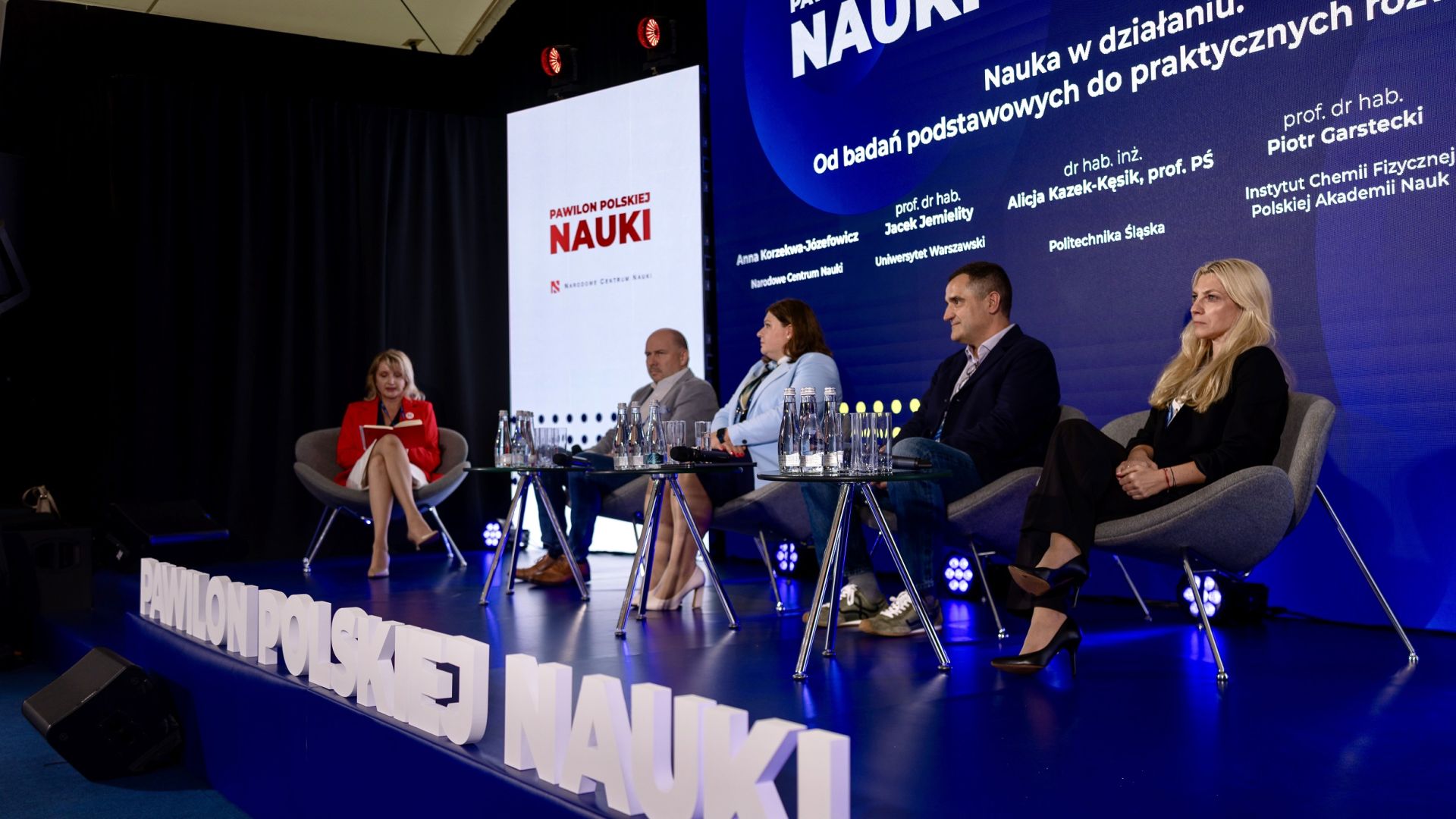 Panel Discussion: Science in Action
During this year's Economic Forum in Karpacz the National Science Centre organised its own discussion panels for the first time. On 2 September, the debate “Science in Action. From Basic Research to Practical Solutions” took place with the participation of scientists who have founded companies and develop technologies based on research results: Prof. Piotr Garstecki from the Institute of Physical Chemistry of the Polish Academy of Sciences (PAN), President of Scope Fluidics; Dr. hab. Sabina Górska, Professor at the Ludwik Hirszfeld Institute of Immunology and Experimental Therapy, Polish Academy of Sciences, Prof. Jacek Jemielity, Chemist at the University of Warsaw, founder of ExploRNA and Dr hab. inż. Alicja Kazek-Kęsik, Professor at the Silesian University of Technology and NCN Council member. The discussion was led by Anna Korzekwa-Józefowicz.
Panel Discussion: Science in Action
During this year's Economic Forum in Karpacz the National Science Centre organised its own discussion panels for the first time. On 2 September, the debate “Science in Action. From Basic Research to Practical Solutions” took place with the participation of scientists who have founded companies and develop technologies based on research results: Prof. Piotr Garstecki from the Institute of Physical Chemistry of the Polish Academy of Sciences (PAN), President of Scope Fluidics; Dr. hab. Sabina Górska, Professor at the Ludwik Hirszfeld Institute of Immunology and Experimental Therapy, Polish Academy of Sciences, Prof. Jacek Jemielity, Chemist at the University of Warsaw, founder of ExploRNA and Dr hab. inż. Alicja Kazek-Kęsik, Professor at the Silesian University of Technology and NCN Council member. The discussion was led by Anna Korzekwa-Józefowicz.
The discussion focused on the role of basic research in creating innovation, on the skills and working methods developed in academia that prove effective in business, and on the conditions Poland should establish to compete more effectively in the global innovation ecosystem.
Our Own Forges of Invention
Piotr Garstecki explained why the competitiveness of the economy depends on the level of research. “Business is a race to better meet the customer’s needs. In this race, with a given level of knowledge, we reach a certain plateau – it becomes difficult to go further and gain an advantage. That’s when we need better technological solutions. And to have them, we need to conduct science at a level that is truly innovative. We live in a globalised world. The patent system is a global system. If someone in China, India, the United States or Germany invents and patents something, it doesn’t matter that we come up with the same thing five years later in Kielce or Warsaw. We’ll have to buy that technology from them. Ergo, to have a competitive long-term economy, we need our own forges of invention.”
He also spoke about the need to concentrate resources, comparing the Polish scientific system to the Boston ecosystem. “There, ten times fewer researchers work than in Poland. They use roughly the same amount of funding as all of Polish research, yet they produce four times more high-quality publications. And when it comes to technology companies, Boston alone has dozens of times more than the whole of Poland. It’s like the Amazon jungle, where unique specimens grow that can’t be found anywhere else. And in Poland? We scatter seeds all over the country, funding ten thousand small greenhouses where no tree can fit. What we need, however, is ‘density’. If we want to have a bit of the Amazon jungle, we can’t spread vines across all of Poland,” he emphasised.
“We can afford the vision of building the Central Communication Port, while at the same time financing bus lines or local rail connections, but we can’t afford to create strong research centres. And yet it is precisely the concentration of resources – this “density” – that is critical for conducting research at the highest level,” he added.
Jacek Jemielity questioned the division between basic and applied science. “The most important thing is that it’s good research – research that truly competes with the best research centres in the world. In my field – mRNA chemistry – the line between these two types of research is fluid. I don't know where one ends and the other begins. We try to publish our results in the best possible journals, but first we patent them if they have commercial potential, and then we either license them or implement them ourselves. However, if we want to see real change in Poland, we must increase funding for the first stage – the moment when the idea for a practical application is only just beginning to take shape,” he emphasised. “To reap a rich harvest, we must first sow something – choosing the best possible seeds that can grow into something exceptional on a global scale.”
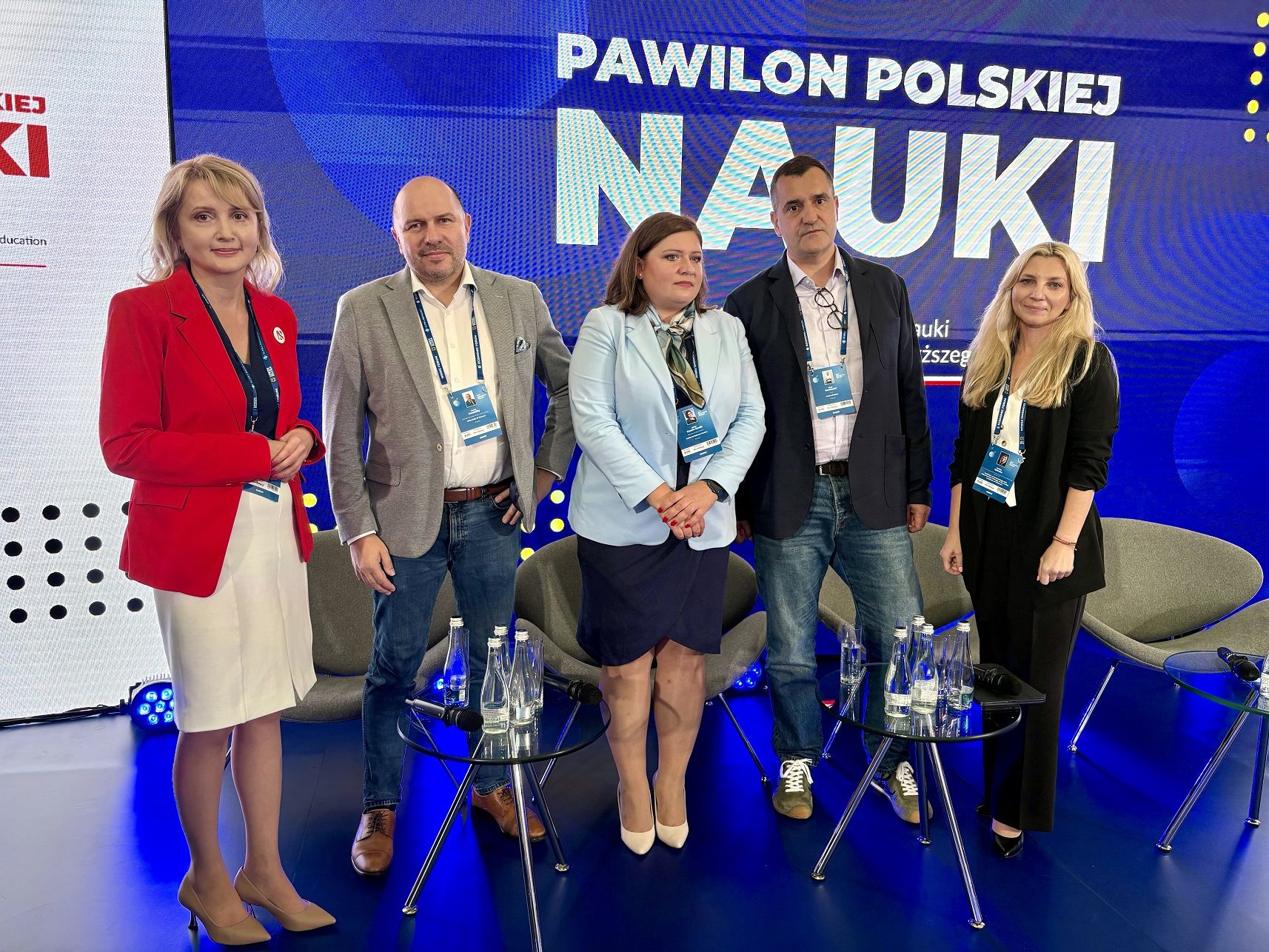 Anna Korzekwa-Józefowicz, Jacek Jemielity, Alicja Kazek-Kęsik, Piotr Garstecki, Sabina Górska
Alicja Kazek-Kęsik also highlighted the importance of funding research at this early stage. “If we enable projects at the lowest TRL levels, 1–2, some of them may turn out to be truly groundbreaking. It is worth supporting bold ideas, even if there is a risk they might not succeed – what matters is that they can be properly evaluated. It is crucial that innovation is not blocked from the very start,” she emphasised. As examples of solutions that grew out of basic research, she cited a method developed by a team at Jagiellonian University for identifying pathogens using mathematical models (combining computer science with microbiology) and T-shirts created at the Silesian University of Technology for monitoring heart activity, which use carbon nanotubes – providing a convenient alternative to traditional Holter monitors.
Anna Korzekwa-Józefowicz, Jacek Jemielity, Alicja Kazek-Kęsik, Piotr Garstecki, Sabina Górska
Alicja Kazek-Kęsik also highlighted the importance of funding research at this early stage. “If we enable projects at the lowest TRL levels, 1–2, some of them may turn out to be truly groundbreaking. It is worth supporting bold ideas, even if there is a risk they might not succeed – what matters is that they can be properly evaluated. It is crucial that innovation is not blocked from the very start,” she emphasised. As examples of solutions that grew out of basic research, she cited a method developed by a team at Jagiellonian University for identifying pathogens using mathematical models (combining computer science with microbiology) and T-shirts created at the Silesian University of Technology for monitoring heart activity, which use carbon nanotubes – providing a convenient alternative to traditional Holter monitors.
Researchers in business
The discussion participants also addressed the question of which skills – beyond strictly technical knowledge – gained in academia give researchers an advantage in business.
Piotr Garstecki highlighted curiosity, logic, disciplined thinking and the ability to collaborate. “In research, you have to carefully observe the world, look for opportunities and risks. You can’t stop at superficial explanations – you have to seek the truth. Even if hierarchical structures still exist in academia, good research is based on the exchange of ideas. All of this is extremely valuable in business.” Sabina Górska added: “Researchers know how to write projects – and not just scientific ones. In the PAN institutes, statutory funding is barely enough to buy gloves. So, we must be able to write a strong, convincing project, manage it and optimise resources. We are creative because we work under constrained conditions. Every zloty is examined from every angle, thinking about whether a given test can be used differently. This has made us very resourceful.” Alicia Kazek-Kęsik emphasised the ability to accept criticism: “In research, we learn that criticism is not an attack, but feedback. When entering industry, a researcher must ask: what is truly needed? Sometimes it turns out that the idea is good, but not profitable, or the market is too small. One must be able to accept this information, change direction, and devote time to strictly industrial research. At the same time, we must not lose sight of basic research, because it is the engine of development.” Jacek Jemielity added that his advantage as an entrepreneur developing his own research ideas is his deep understanding of the technology his company works on.
Where do innovations disappear?
What is the biggest obstacle for a researcher-innovator? When asked this question, the panellists pointed to bureaucracy and unstable funding. Jacek Jemielity highlighted the restrictive Public Procurement Law, which prolongs research processes, as well as low salaries and employment regulations that make it difficult to hire the best specialists. Alicja Kazek-Kęsik pointed out the unrealistic expectations placed on research. “It is often assumed that every project must end with implementation. This discourages researchers from taking on ambitious and risky topics, because they fear being held accountable if there is no commercial success,” she emphasised.
Sabina Górska spoke about the difficulties of valuing technology and communicating with business. “When it comes to sales, there’s always the question: are we pricing too low or too high? Often, we don’t speak the same language as business. And when it comes to initiating start-ups, although start-up culture in Poland is developing, there is still a lack of early-stage funding. Investors expect a prototype right away, or better yet proof that something is already being sold, while at this stage scientists often have only an idea,” she explained. She pointed to the TANGO programme, previously run by the NCN and NCBR, as a model example of support. “I used it twice. Thanks to it, we were able to verify our assumptions and sell a licence for a rapid diagnostic test for infections in pregnant women. This programme made it possible to check whether discoveries had industrial potential. Today, such a programme is sorely missing,” she emphasised.
One decision by the Minister
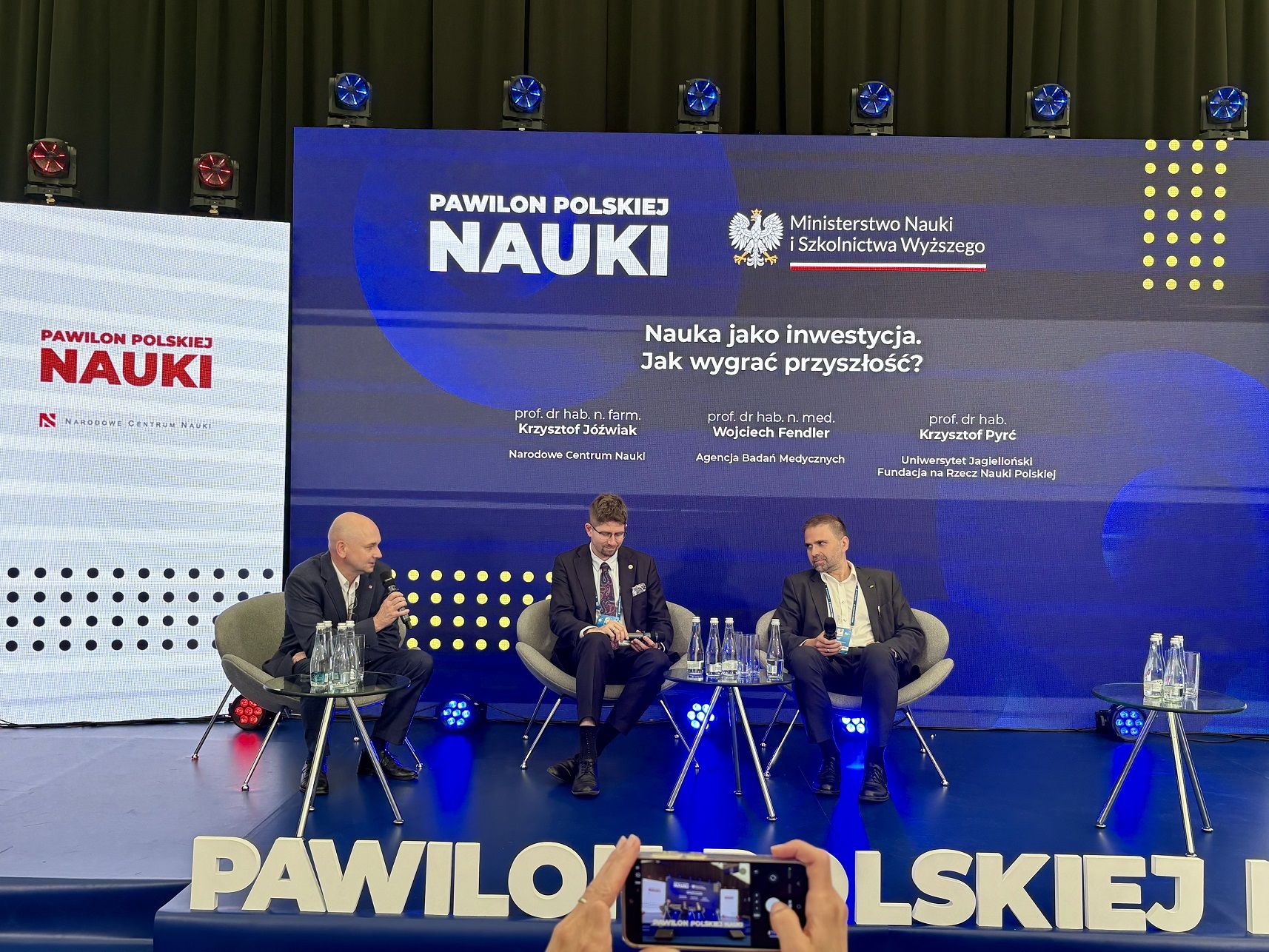 Science as an Investment. How to Win the Future? From the left: Krzysztof Jóźwiak, Wojciech Fendler i Krzysztof Pyrć
The panellists were also asked by an audience member what single decision they would recommend to the Minister of Science. Alicja Kazek-Kęsik emphasised that ‘her heart lies with basic research’. “If a long-term plan for financing basic research were created, it would allow the NCN Council to work over a longer horizon on changes to the grant programs, tailoring them to the needs of the scientific community,” she noted. Jacek Jemielity supported Piotr Garstecki’s earlier remarks about the improper distribution of available funds. “I would advise the Ministry of Science and Higher Education to fund research more boldly in a quality-oriented way. If we want to spread money thinly across everyone, we won’t generate any real effect. If financial instruments were designed to promote quality, we could expect better results,” he said. Piotr Garstecki added that it is worth fully embracing the fact that the Ministry’s name combines both science and higher education. “These are two different worlds and should be supported differently. We fund public transport, but when it comes to space travel, instead of a network of regional airports, we need one cosmodrome that can at least get us to the Moon,” he illustrated. “The most important thing is to increase funding and ensure greater stability of the system,” summarised Sabina Górska. “Let’s not change the rules every year or two. We need predictability and support for basic research.
Science as an Investment. How to Win the Future? From the left: Krzysztof Jóźwiak, Wojciech Fendler i Krzysztof Pyrć
The panellists were also asked by an audience member what single decision they would recommend to the Minister of Science. Alicja Kazek-Kęsik emphasised that ‘her heart lies with basic research’. “If a long-term plan for financing basic research were created, it would allow the NCN Council to work over a longer horizon on changes to the grant programs, tailoring them to the needs of the scientific community,” she noted. Jacek Jemielity supported Piotr Garstecki’s earlier remarks about the improper distribution of available funds. “I would advise the Ministry of Science and Higher Education to fund research more boldly in a quality-oriented way. If we want to spread money thinly across everyone, we won’t generate any real effect. If financial instruments were designed to promote quality, we could expect better results,” he said. Piotr Garstecki added that it is worth fully embracing the fact that the Ministry’s name combines both science and higher education. “These are two different worlds and should be supported differently. We fund public transport, but when it comes to space travel, instead of a network of regional airports, we need one cosmodrome that can at least get us to the Moon,” he illustrated. “The most important thing is to increase funding and ensure greater stability of the system,” summarised Sabina Górska. “Let’s not change the rules every year or two. We need predictability and support for basic research.
Research as an investment
On the last day of the Economic Forum, 4 September, the panel “Science as an Investment. How to Win the Future?” was held, featuring Professor Wojciech Fendler, President of the Medical Research Agency; Krzysztof Jóźwiak, Director of the National Science Centre (NCN); and Krzysztof Pyrć, President of the Foundation for Polish Science. The discussion focused on the role of the state in funding research and how decisions made today will shape Poland’s position in the coming decades. This topic was also addressed in the first episode of the 4th season of the NCN podcast – available for the first time in video format – featuring the heads of the agency. Krzysztof Jóźwiak also took part in the panel “In Search of Scientific Excellence.” He also discussed work on the National Strategy for the Internationalisation of Science and Higher Education, organised by NAWA.

